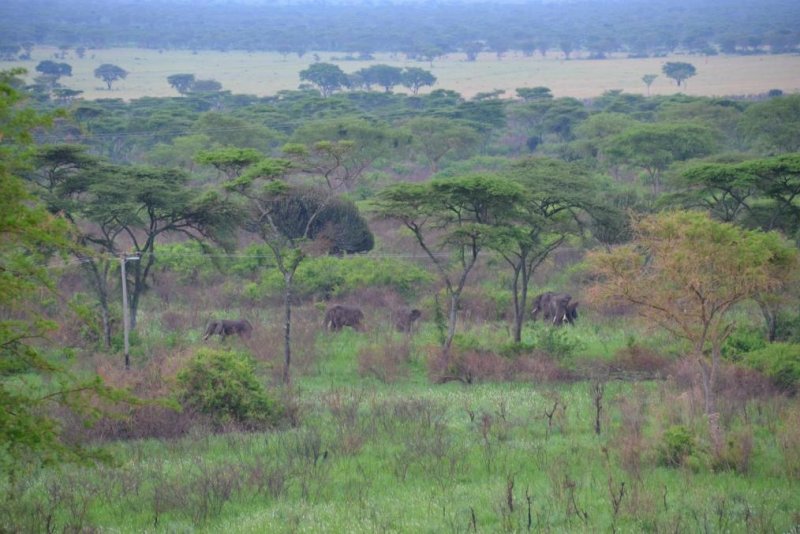ByBrooks Hays SCIENCE NEWS APRIL 29, 2020

Elephants in Uganda pass beneath power lines. Photo by Laura Sonter/QU
April 29 (UPI) -- To offset the environmental impacts of large-scale building projects, developers can spearhead conservation efforts in other parts of the world.
New research, published this week in the journal Nature Communications, suggests land for this kind of biodiversity offsetting is becoming increasingly scarce, threatening to thwart conservation goals.
"Most countries now have offsetting policies requiring developers to re-vegetate or protect areas of habitat and ecosystems, to compensate for biodiversity losses caused by their projects," Laura Sonter, ecologist at the University of Queensland in Australia, said in a news release. "When these activities create as much biodiversity as that lost to development, the offsets are said to achieve no net loss of biodiversity."
The problem is that land is limited. With every new development, the land supply dwindles. Land suitable for re-vegetation or protection is especially scarce. In some parts of the world, plans for new developments are made every day.
"In East Kalimantan, Indonesia, twice the amount of land that is currently available for revegetation would be required to compensate for losses from proposed developments, in order to achieve no net loss of biodiversity -- and we found similar results in Mozambique and Brazil," Sonter said. "For places like these, it is inevitable that development will result in an overall loss of biodiversity, because land availability constraints make no net biodiversity loss impossible to achieve."
Criticism of some biodiversity offsetting programs have moved policymakers to call for more aggressive conservation efforts from developers, further reducing the amount of land available for future biodiversity offsetting efforts.
It's possible the lack of land available for biodiversity offsetting could ultimately slow the pipeline of development projects in some countries, but Sonter and her colleagues worry policymakers will instead relax offsetting requirements, paving the way for more dramatic biodiversity losses.
RELATED Global warming is undoing decades of progress in marine reserves
"The consequences of offset failure for rare species and habitats that have limited opportunities for offsetting are disproportionately large, and include near-certain extinction," Sonter said. "However, since development is essential in many instances, we recommend governments explicitly account for land availability constraints in their offset policies and making decisions about projects."
"The consequences of offset failure for rare species and habitats that have limited opportunities for offsetting are disproportionately large, and include near-certain extinction," Sonter said. "However, since development is essential in many instances, we recommend governments explicitly account for land availability constraints in their offset policies and making decisions about projects."
No comments:
Post a Comment